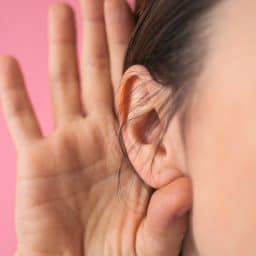Facts About Hearing Loss
Our ears have three major parts – the outer ear, the middle ear, and the inner ear. The inner ear houses the hearing organ called the cochlea. It is a small snail-like structure within the inner ear. Inside the cochlea, there are over 20 thousand hair cells that communicate with the auditory nerve and send…
Communication Tips
Better hearing requires more than just hearing aids Hearing your best means having the right technology — fit specifically to your unique hearing needs — for the environments you find yourself in most often, and maximizing that technology with better communication strategies. Anytime someone is fit with new technology, there will be an adjustment period….
Why Do We Fall?
Every year more than two million Americans fall and sustain serious injury, costing in excess of three billion dollars. Hidden costs include pain, disability, lawsuits, deterioration in general well-being, and impact on other family members. Falls and the resulting injuries have become one of the elderly’s most serious health issues. As our senior population continues…
Earwax & Earwax Blockage
Never put anything smaller than your elbow in your ear! Cotton swabs are for cleaning bellybuttons, not ears. You have probably heard these admonitions from relatives and doctors since childhood…read on to find out what they meant. The Outer Ear and Canal The outer ear is the funnel-like part of the ear you can see…
Ears & Altitude
Have you ever wondered why your ears pop when you fly on an airplane? Or why, when they fail to pop, you get an earache? Have you ever wondered why the babies on an airplane fuss and cry so much during descent? Ear problems are the most common medical complaint of airline travelers, and while…
What is Unilateral Hearing Loss?

What is Single Sided Deafness? Sometimes referred to as unilateral hearing loss, single sided deafness is a condition in which an individual experiences hearing loss in only one ear but can hear normally out of the other ear. While most patients with a hearing impairment suffer from bilateral (two-sided) hearing loss, SSD affects approximately 60,000…
What is Sudden Hearing Loss?

For most people who experience hearing loss, the condition comes on gradually over a period of years. In rare cases, an abrupt loss of hearing occurs with little or no warning. This condition is known as sudden sensorineural hearing loss (SSHL). What is Sudden Deafness? Sudden deafness is an unexplained and rapid hearing loss that…
What is Noise Induced Hearing Loss?

How Can Sounds Hurt Your Ears? Background sound is a constant in our busy lives. Normally, background noises are at safe levels that do not negatively impact our hearing. But repeated exposure to noise above 85 decibels (dB) can cause noise induced hearing loss. The louder the sound, the less amount of time it takes…
Q&A: Water and Hearing Aids
Q: Are my hearing aids really kaput if they get wet? A: If you only knew how often we get this important question. As powerful as they are, hearing aids — like all electronics — have a couple of Achilles’ heels, and one of them is water. The moisture could come from a swimming pool,…
Coronavirus (COVID-19) Update
There is no higher priority for Rocky Mountain Ear Center than the health and well-being of our patients and employees. We are closely following guidance on COVID-19 (Coronavirus Disease 2019) from the Centers for Disease Control and Prevention (CDC) and the Colorado Department of Public Health and Environment to stay on top of all developments. We fully recognize that many…
